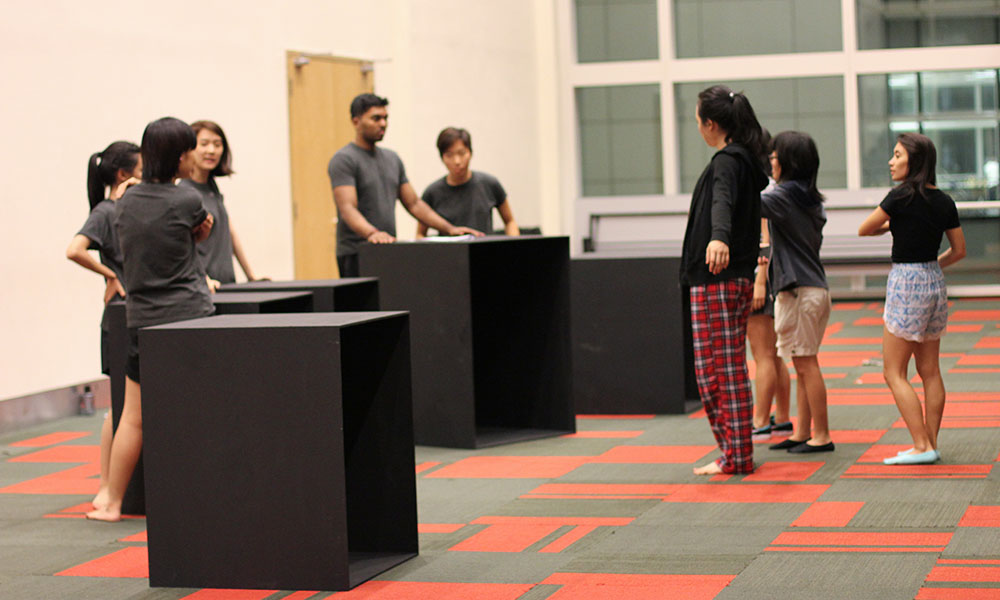By Jade Pearce
Dizi Gui (Standards for Being a Good Student and Child) is an ancient Chinese text for children that teaches moral values and etiquette. It was written during the Qing Dynasty during the reign of Emperor Kangxi (1661-1722) by Li Yuxiu.
Beneath the conservative, “old-school” verbose of this ancient classic, one can still find gems of wisdom that remain surprisingly relevant to our modern society. A new lesson is covered in each issue.
Only by losing one’s virtue can one lose his or her status.
Liu Yan
You’ve probably heard of or joked about the Singaporean Dream of the 5 C’s: Cash, Car, Credit card, Condominium, and Country club membership. Or its upgraded version, the 5 B’s: Brain, Body, Billionaire, Bungalow, and BMWs.
In cosmopolitan Singapore, attaining material wealth and social status is what many consider the pinnacle of success. It keeps people slogging hard at their jobs. It is the dream that many, especially fresh-faced entrants to the workforce, want to achieve.
In recent years, however, some have questioned our focus on material wealth and proposed a new set of C’s—character, consideration, charity, and commitment, to name some.
This week’s lesson from Dizi Gui echoes this sentiment: “In virtue, learning, ability and skill, spur yourself to catch up if you’re not as good as others. But if it’s in clothing, attire, housing, or food that you are not as good as others, then don’t be affected.”

And there is indeed some wisdom to this statement—when people judge a person’s true worth, it’s his internal self that is most important and that earns the greatest respect; not his external façade.
Here, we highlight two great examples of this lesson: Madame Marie Curie, and Liu Yan, a prime minister of the Tang Dynasty.
The Martyr to Science

Polish physicist and chemist Marie Curie (1867-1934) is most famous for her pioneering research on radioactivity, which paved the way for nuclear physics and cancer therapy, and for which she was awarded two Nobel Prizes—the first person (and only woman) to do so.
Madam Curie spent her entire life working to further her discoveries, which ultimately cost her life.
Her early research with her husband, Pierre Curie, was performed in poorly ventilated shed with a broken roof, which dropped to 6 degrees in winter.
She went on to direct the world’s first studies of radioactive isotopes for cancer treatment, and raised funds to establish the Curie Institutes for medical research.
Beyond her scientific achievements, Madame Curie was revered by people for her modesty and selflessness.
She and her husband chose not to patent radium—which would have given them much-needed funds—so that other scientists could research on radium unhindered. They often refused medals and awards. Curie also gave away most of her Nobel Prize money to family, friends, and associates.
She was always seen in the same garb—a simple dark dress. She once famously said, “I have no dress except the one I wear every day. If you are going to be kind enough to give me one, please let it be practical and dark so that I can put it on afterwards to go to the laboratory.”
When she passed away, the world mourned the loss of a brilliant scientist and magnificent human being. Said Albert Einstein, “Marie Curie is, of all celebrated beings, the only one whom fame has not corrupted.”
The Thrifty Prime Minister

Liu Yan (刘晏) was a famous financial expert of the Tang Dynasty. A child genius, Liu was made a palace scribe at seven. Instead of becoming complacent, he studiously capitalised on the imperial library’s vast literature to improve his knowledge. Liu was best known for reforming the Tang salt monopoly and food transportation systems, and for enabling the recovery of the Tang economy after the disastrous Anshi Rebellion.
An incorruptible and honest official, Liu was very thrifty. One wintery morning, Liu was on his way to a meeting when he saw some bakeries selling hot cakes. He decided to buy one, but went into a few bakeries first before finding the cheapest one.
When the other officials passed by the cheap bakery, they laughed when they saw Prime Minister Liu inside eating hot cakes. Liu simply smiled and told them that the cakes were delicious.
His servants were embarrassed, but Liu said, “It is a virtue to be thrifty. Only by losing one’s virtue can one lose his or her status, and a virtuous person will always be thrifty.”
Other than his royal robes, Liu’s clothes were all made of homespun cotton. He lived in a simple house with old furniture, and his meals were spartan. He had few servants, and his wife and children did the household chores.
Despite his thriftiness, Liu frequently liked to help others. Most of his income was used to help others in need. Many poor students received his financial assistance, as well as his less fortunate relatives and friends.
For his talent and moral character, Liu has been immortalised in Chinese history as one of its greatest financial analysts.
















